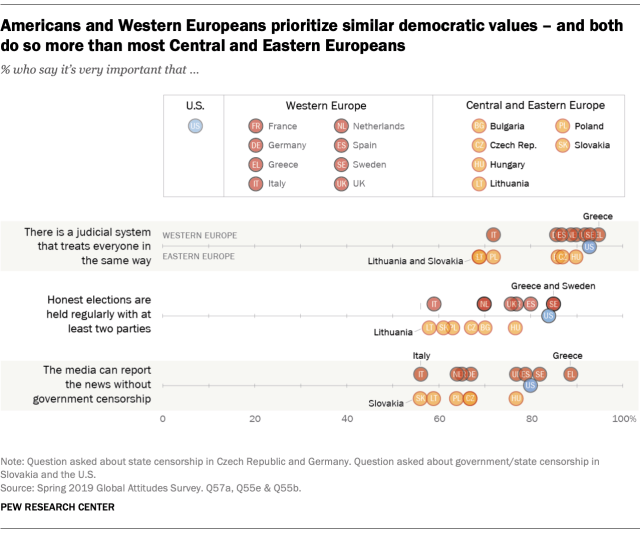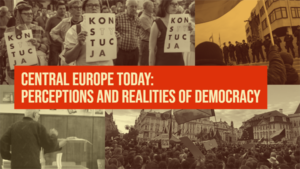
How are American attitudes similar to or different from those measured in Europe? Are Americans more individualistic than their European counterparts? More religious? Do they value different things in politics? Results of a new Pew Research Center survey conducted in 14 European Union member states and the United States indicate that American and European values sometimes vary when it comes to key areas affecting their lives: the factors important to democracy, evaluations of the state, LGBT rights and gender, the importance of religion and the paths to a successful life, writes Laura Silver, a senior researcher focusing on global research at Pew Research Center.
 Americans and Western Europeans largely agree about what is important for democracy, but they put greater emphasis on these principles than Central and Eastern Europeans, she observes:
Americans and Western Europeans largely agree about what is important for democracy, but they put greater emphasis on these principles than Central and Eastern Europeans, she observes:
Across nine democratic traits asked about in the survey, Americans and Western Europeans were both likely to be in agreement on what was “very important” on most issues. Roughly nine-in-ten Americans (93%) and a median of 90% of Western Europeans say it’s very important to have a fair judiciary. In comparison, a median of 77% in Central and Eastern Europe say a fair judiciary is very important. Americans are about as likely as Western Europeans to say that honest, regular elections with at least two parties are very important for the country, and both see this as more important than most in Central and Eastern Europe. RTWT







